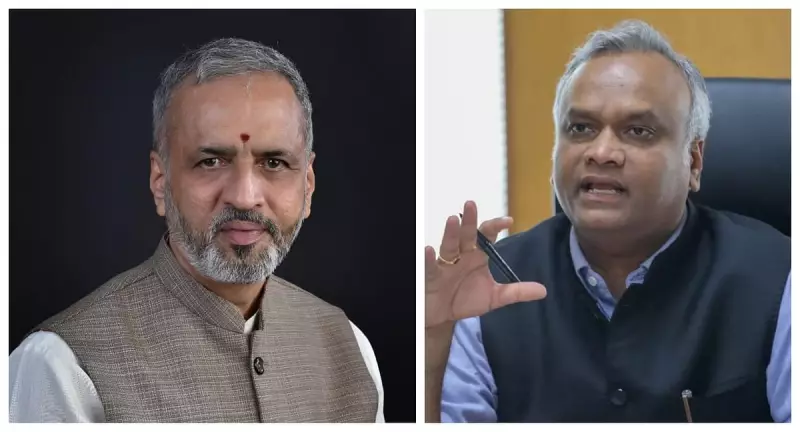
In a fiery response to controversial remarks made by a BJP parliamentarian, Congress leaders in Karnataka have launched a scathing criticism, labeling the claims about India's national anthem as "utter nonsense" and historically inaccurate.
Political Storm Over National Anthem Origins
The controversy erupted when BJP MP Ramesh Bidhuri asserted during a parliamentary discussion that Rabindranath Tagore composed 'Jana Gana Mana' specifically to welcome British King George V during his 1911 visit to India. This historical interpretation sparked immediate backlash from opposition parties.
Congress Leaders Launch Counterattack
Senior Congress leader and Karnataka Minister Priyank Kharge led the charge against what he called "misinformation" about the national anthem. "It is utter nonsense," Kharge stated emphatically, highlighting that the BJP MP's claims demonstrated a concerning lack of understanding about India's cultural heritage and historical facts.
Historical Context and Facts
Historical records indicate that Tagore's composition 'Jana Gana Mana' was first sung at the Calcutta Session of the Indian National Congress on December 27, 1911. The song was originally titled 'Bharoto Bhagyo Bidhata' and was written in highly Sanskritized Bengali.
Contrary to the BJP MP's claims, historians have consistently maintained that the composition was not written for the British monarch. The timing of its first public performance, coinciding with George V's visit, has been a subject of historical discussion, but most scholars reject the theory that it was composed specifically for the British king.
Political Implications
The controversy comes at a time when political tensions are high in Karnataka, with both major parties positioning themselves ahead of crucial political battles. The Congress party has seized the opportunity to question the BJP's understanding of national history and cultural symbols.
Minister Kharge emphasized that such statements from elected representatives not only spread misinformation but also disrespect the legacy of one of India's most celebrated literary figures and Nobel laureates.
Broader Pattern of Historical Revisionism
Congress leaders suggested this incident is part of a larger pattern of attempts to rewrite Indian history to suit particular political narratives. They called for greater responsibility among public figures when discussing national symbols and historical facts.
The party demanded that BJP leadership clarify its position on the matter and ensure its members refrain from making unsubstantiated claims about nationally significant cultural artifacts.






